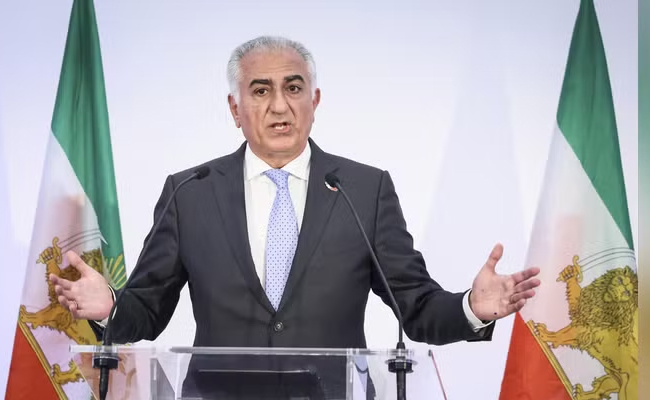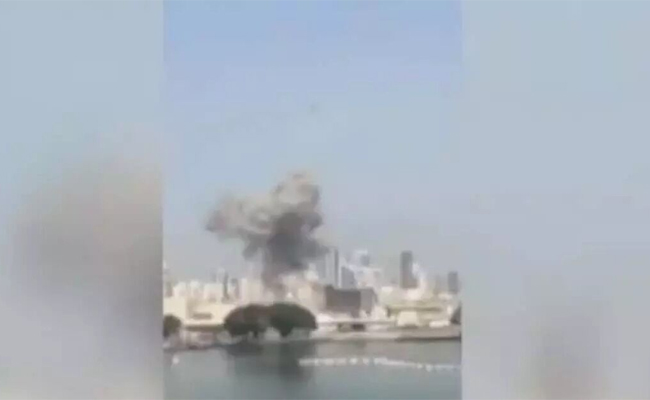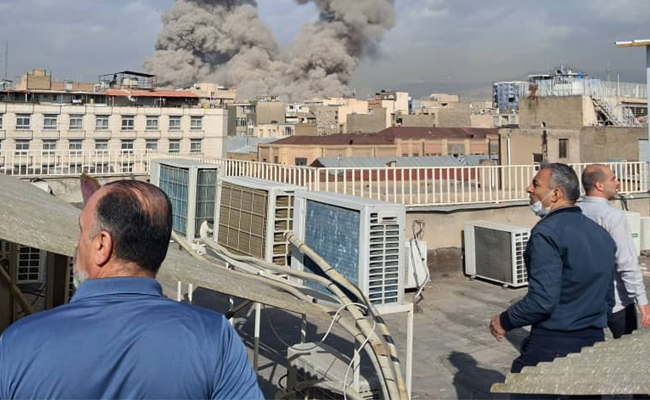Mangaluru, Nov 29: The toll collection at the plaza in Surathkal near here will be stopped completely by November 30 night, Dakshina Kannada Deputy Commissioner M R Ravikumar has said.
Based on the letter issued by the project director of National Highways Authority of India (NHAI), the DC issued orders to the effect on November 24, which was released on Monday.
The order states that toll charges will not be collected at Surathkal toll gate from December 1.
The NHAI has already passed an order to collect additional toll charges at Hejamadi toll gate after the decision to merge the two toll gates.
The order from NHAI also says that in order to ensure that there is no disruption or stoppage to the combined toll collection at Hejamadi toll plaza or in case there is any disruption or stoppage of toll collection, the losses on this account shall be reimbursed by the state government as per the state support agreement to NHAI.
The decision to remove the toll gate near NIT-K at Surathkal comes after prolonged protests from the public.
People have been on the warpath for the last several months against the toll gate at Surathkal near here, which they term as illegal' as the nearest toll gate at Hejamadi is just 10 km away. National Highway rules stipulate that no two toll plazas should exist between a 60-km stretch.
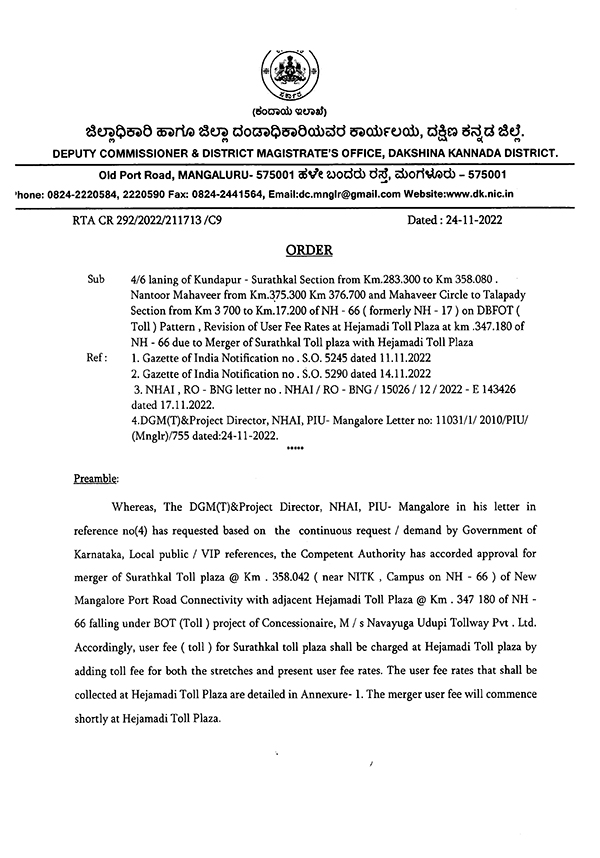
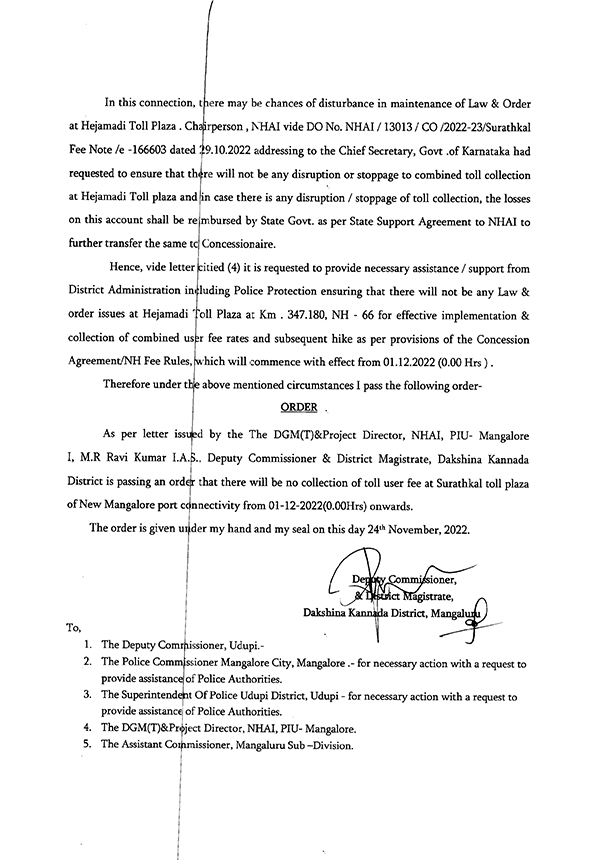
Let the Truth be known. If you read VB and like VB, please be a VB Supporter and Help us deliver the Truth to one and all.
Mangaluru: Surathkal Police have arrested two persons and seized 54.06 grams of MDMA valued at Rs 5.41 lakh near a weighing bridge at Mukka within the Surathkal police station limits, Deccan Herald reported on Saturday.
According to DCP (Law and Order) Mithun H.N., the police acted on credible information that a resident of Kaup was arriving in the area to sell MDMA. Based on the tip-off, the PSI of Surathkal Police Station conducted a raid and found two cars parked side by side at the spot.
The arrested accused have been identified as Zakaria (38), from Kombugudde in Kaup and Mithun Poojary (23), from Santhekatte, Udupi district.
During interrogation, it was revealed that the accused had allegedly come to Surathkal to sell the MDMA to college students and the general public. Police arrested both and seized a total of 54.06 grams of MDMA from their possession,18.42 grams from Zakaria and 36.18 grams from Mithun Poojary.
Police confiscated two cars worth Rs 13 lakh, two mobile phones valued at Rs 20,000, and cash amounting to Rs 11,700. The total value of the seized property is estimated at Rs 18,72,700.
A case has been registered at the Surathkal Police Station under the Narcotic Drugs and Psychotropic Substances (NDPS) Act. Further investigation is in progress.
The DCP said that Zakaria has a criminal history, with five previous cases registered against him. These include assault cases at Bajpe Police Station in 2009 and Mulki Police Station in 2020, a case involving assault on a woman in 2022, a kidnapping case at Udupi Town Police Station in 2021, and another assault case at Padubidri Police Station in 2022.



